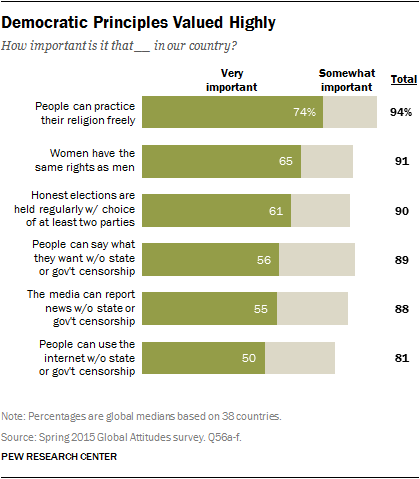
There is broad support around the world for many of the basic tenets of democracy. In all 38 nations surveyed, majorities say it is at least somewhat important to live in a country with religious freedom, a free press, free speech and competitive elections. In 37 countries, half or more believe it is important for women to have the same rights as men and for people to be able to use the internet without government censorship (Burkina Faso is the exception).
The other five democratic freedoms tested illustrate a different regional pattern. Support for all five is particularly strong in the U.S., Canada, Latin America and Europe. While majorities generally say these values are important in the Middle East, Africa and the Asia-Pacific region, the intensity of support is lower in these regions.
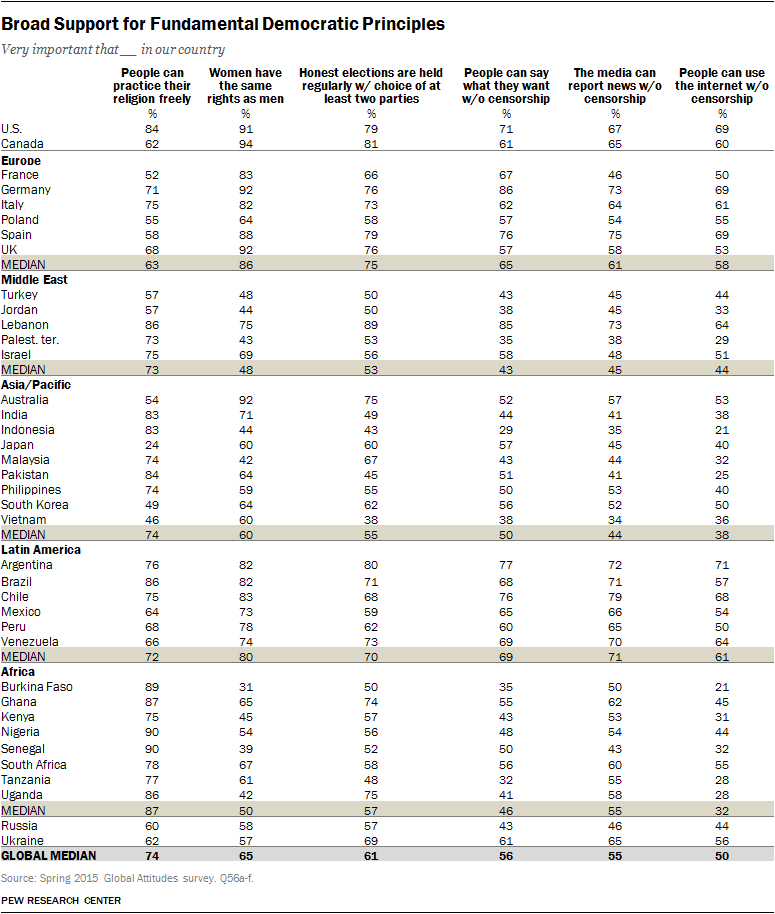
Elections are clearly considered a central component of democracy, and across the 38 nations in the study, a median of 61% think it is very important to have honest, competitive elections with the choice of at least two political parties. However, there are five nations where fewer than half deem this very important: India, Tanzania, Pakistan, Indonesia and Vietnam.
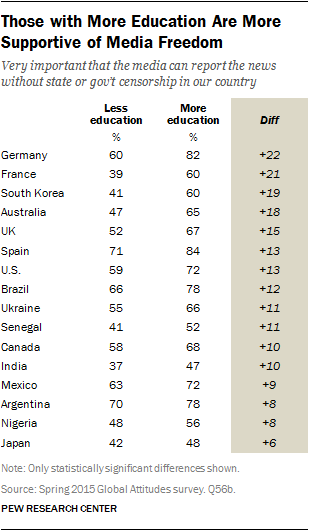
Opposition to internet censorship is also common around the world. A global median of 50% say an uncensored internet is very important. The highest support for internet freedom tends to be in nations with higher rates of internet usage. And within countries, individuals who report that they use the internet at least occasionally or own a smartphone are more likely to consider freedom in cyberspace very important. This gap between internet users and nonusers is found in economically advanced, emerging and developing nations alike. The divide is widest in Germany, where 74% of internet users say it is very important for the internet to be free of state censorship, compared with just 44% of nonusers. Gaps of 20 percentage points or more are also found in Senegal, Japan, Spain, France, Australia, Israel, the U.S., Italy, Brazil, Uganda and Burkina Faso.
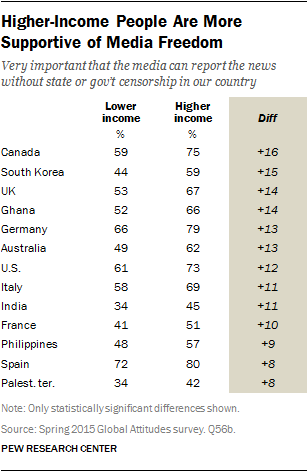
Support for Democratic Values Linked to Education, Income
In many nations, people with more education express stronger support for democratic principles, including free expression.1 For instance, in 16 countries, those with higher levels of education are more likely than those with less education to say allowing the media to report the news without state censorship is very important. In 12 nations, the more educated are more supportive of free speech, and in 23 they place greater value on internet freedom.
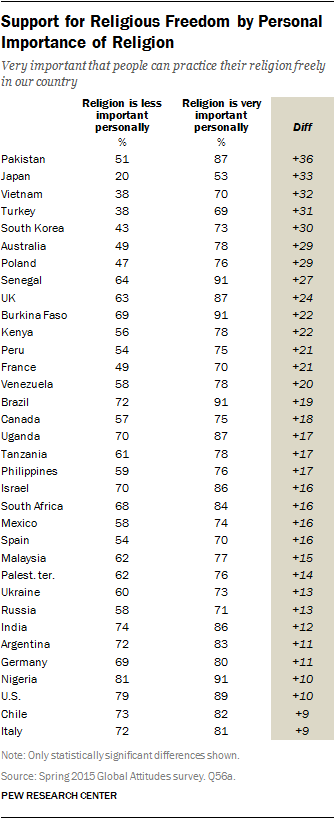
People with higher incomes also tend to place greater importance on democratic rights in many countries.2 Looking again at press freedom, in 13 countries, those with higher household incomes are more likely than lower-income people to say allowing the media to report the news without government censorship is very important. People with higher incomes are more likely to say free speech is very important in 12 nations, and are more supportive of freedom on the internet in 21 countries.
Religious Freedom and Importance of Religion
Freedom of religion is widely embraced around the world, but it is particularly significant to people who place high importance on religion in their lives. In 34 nations, those who say religion is very important in their own lives are more likely to believe it is very important to live in a country where people can practice their religion freely.
The gap on this question between those who indicate religion is very important and those saying it is less important is more than 25 percentage points in Pakistan, Japan, Vietnam, Turkey, South Korea, Australia, Poland and Senegal.3
A Wide Gender Gap on Equal Rights for Women
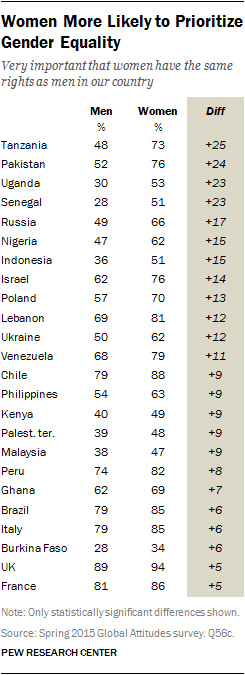
Japan is the only nation surveyed where men (67% very important) express stronger support for gender equality than women do (53%).
Education is also a strong predictor of how people view gender equality. In 20 nations, those with higher levels of education are more likely than those with less education to consider equal rights for women very important.




